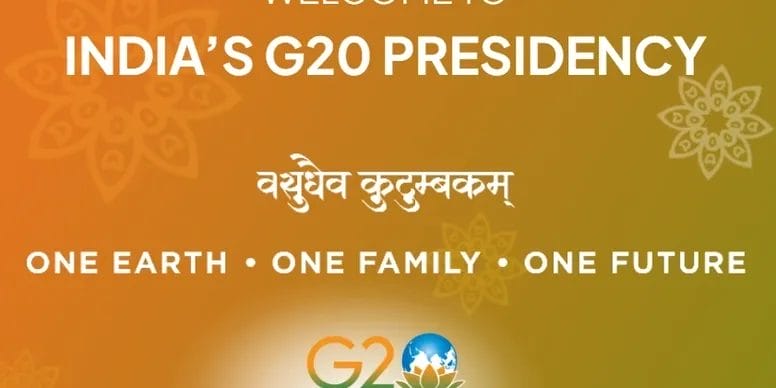
Last week, a G20 meeting was hosted by India in New Delhi. The heads of state and government of the countries representing 80% of the world’s GDP gathered to discuss the most relevant issues affecting the global economy – with the notable exception of China’s Xi Jinping, who did not attend the meeting.
We have discussed in previous articles how the multilateral institutions in charge of what can be called “global governance”, in particular the G20 and the UN Security Council (UNSC), have been affected by the ongoing Cold War 2 between the US and China. These fora have become polarised, in some cases balkanised, and, therefore, ineffective. The polarisation of positions within the G20 was such that severe doubts emerged ahead of the meeting as to whether a joint statement could be released at the end of the meeting.
In reality, the leaders did manage to issue a joint statement, summarizing the conclusions of the work undertaken by the various sectoral components of the G20 on issues of global growth, health, the green transition, debt financing, technological transformation, international taxation, gender equality, etc. But, as one can imagine, a compromise solution implied a watered-down version of the communique. In particular, it is extremely disappointing to note that the final texts make no explicit mention of “Russia’s unjustified invasion of Ukraine” (the wording that even the European Central Bank uses to describe it). It only says that “all states must refrain from the threat or use of force to seek territorial acquisition against the territorial integrity and sovereignty or political independence of any state. The use or threat of use of nuclear weapons is inadmissible.”
In spite of all this, some important results were delivered by the meeting. In our opinion the most relevant are the following. First, the leaders of countries including India, the United States, Saudi Arabia, the United Arab Emirates, France, Germany, and Italy, as well the European Union, have signed a Memorandum of Understanding (MoU) that establishes the “India-Middle East-Europe Economic Corridor,”a “railway network designed to provide reliable and cost-effective cross-border ship-to-rail transit, complementing existing maritime and road transport routes.”
This network, passing through India, the UAE, Saudi Arabia, Jordan, Israel, Italy, France and Germany, will provide the logistical support to the Partnership for Global Infrastructure and Investment (PGII), and will represent the “Western” alternative to China’s Belt and Road Initiative (BRI), on its tenth anniversary. Needless to say, US President Biden pushed hard for the creation of this corridor.
Second, India and the US cemented their “close and enduring partnership” and reinforced the conclusions of the meeting held in Washington in June, wherein the US will support India’s bid for a permanent seat in the UNSC and will invest in semiconductors facilities in India, while providing US-made armed drones to the country. Biden also agreed to return to New Delhi in 2024 for a leadership meeting of the Quad, the Quadrilateral strategic pact with Japan and Australia (the democracies of the Indo-Pacific, aimed at “containing” China). This seems to reinforce the impression that India, in this Cold War 2, may decide to eventually side with the US rather than with China and Russia.
Finally, it has emerged that Italy, in a meeting between Italian PM Meloni and Chinese PM Li Qiang, has decided not to renew the memorandum of understanding regarding Italy’s participation to the BRI, which had caused severe concerns in Washington and Brussels in 2019. Italy instead will revive the “Global Strategic Partnership” it signed with China in 2004, which will be “the beacon for the advancement of friendship and cooperation … in every area of common interest”, according to the statement released after the meeting.
All in all, it seems that this meeting that Xi Jinping deserted (after his diplomatic success of the BRICS enlargement) in order to weaken Modi’s leadership, marked a series of successes for the US-led front, alongside China’s victory of not explicitly mentioning Russia’s invasion of Ukraine.